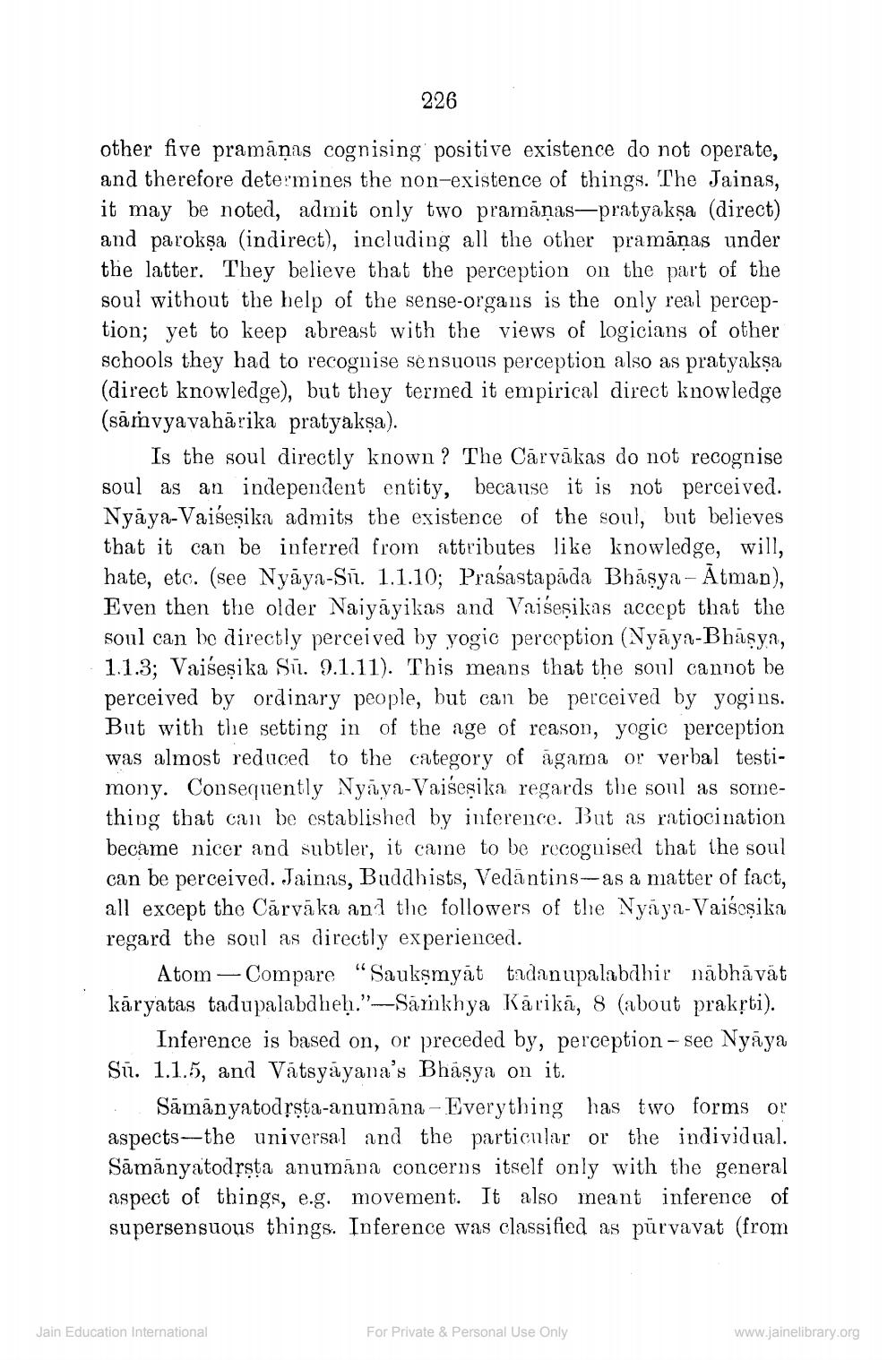________________
226
other five pramāņas cognising positive existence do not operate, and therefore determines the non-existence of things. The Jainas, it may be noted, admit only two pramāņas—pratyaksa (direct) and parokşa (indirect), including all the other pramāņas under the latter. They believe that the perception on the part of the soul without the help of the sense-organs is the only real perception; yet to keep abreast with the views of logicians of other schools they had to recognise sensuous perception also as pratyakşa (direct knowledge), but they termed it empirical direct knowledge (sāmvyavahärika pratyakşa).
Is the soul directly known ? The Cārvākas do not recognise soul as an independent entity, because it is not perceived. Nyaya-Vaišeșika admits the existence of the soul, but believes that it can be inferred from attributes like knowledge, will, hate, etc. (see Nyāya-Sī. 1.1.10; Prasastapāda Bhāşya - Atman), Even then the older Naiyáyikas and Vaišeşikas accept that the soul can be directly perceived by yogic perception (Nyāya-Bhasya, 1.1.3; Vaišeșika Sū. 9.1.11). This means that the soul cannot be perceived by ordinary people, but can be perceived by yogins. But with the setting in of the age of reason, yogic perception was almost reduced to the category of agama or verbal testimony. Consequently Nyāya-Vaišesika regards the soul as something that can be established by inference. But as ratiocination became nicer and subtler, it came to be recognised that the soul can be perceived. Jainas, Buddhists, Vedāntins--as a matter of fact, all except the Cárvāka and the followers of the Nyåya-Vaišeşika regard the soul as directly experienced.
Atom — Compare “Saukşmyāt tadanupalabdhir näbhāvāt kāryatas tadupalabdheh.”—Sarkhya Karikā, 8 (about prakrti).
Inference is based on, or preceded by, perception - see Nyāya Sū. 1.1.5, and Vätsyayana's Bhäsya on it. . Sāmānyatodřsta-anumāna - Everything has two forms or aspects--the universal and the particular or the individual. Sāmānyatodrsta anumana concerns itself only with the general aspect of things, e.g. movement. It also meant inference of supersensuous things. Inference was classified as pūrvavat (from
Jain Education International
For Private & Personal Use Only
www.jainelibrary.org




